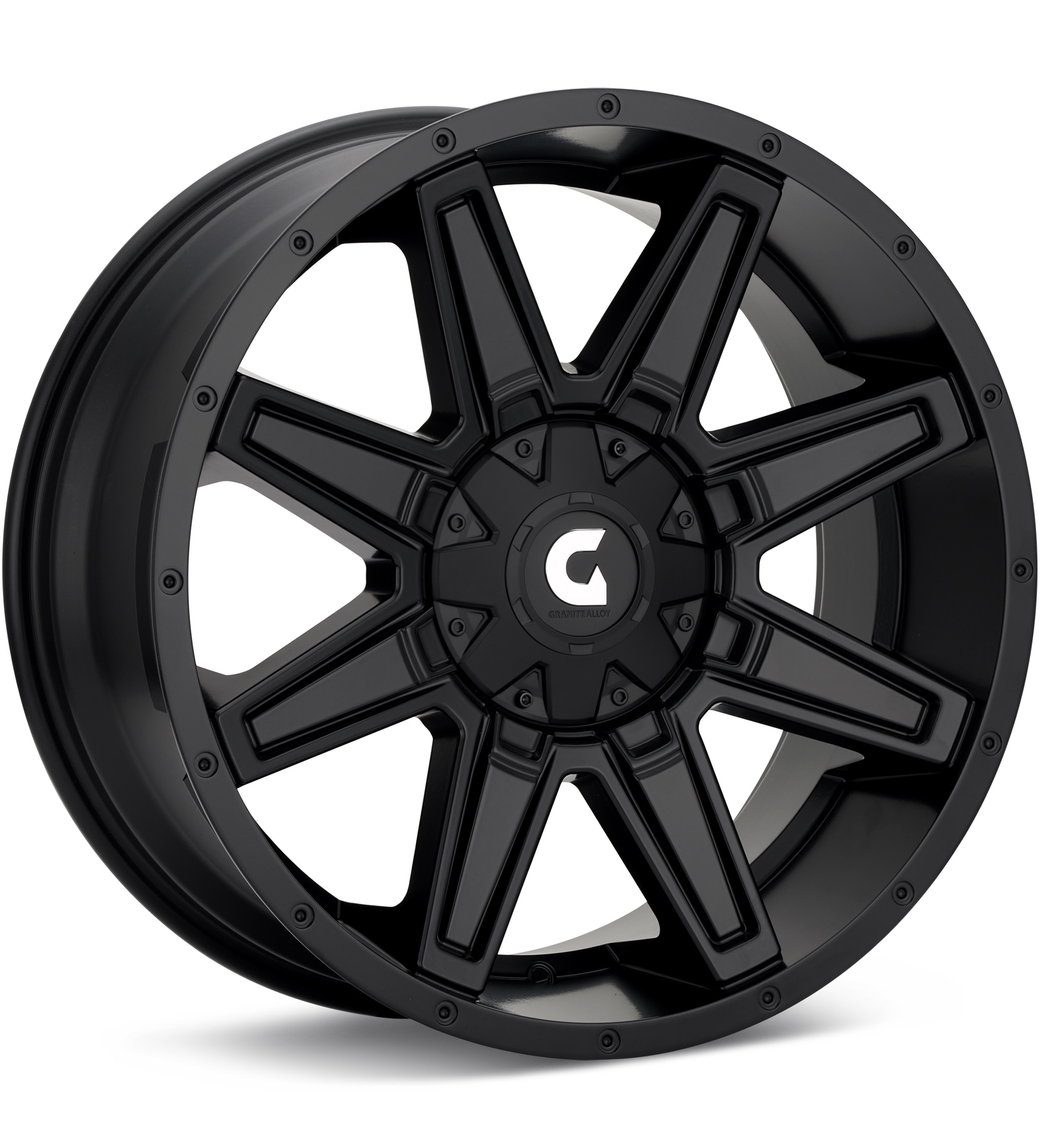Granite Alloy Wheels: A Blend of Stamina, Toughness, and Appearances
Granite Alloy Wheels: A Blend of Stamina, Toughness, and Appearances
Blog Article
Intro: The Significance of Selecting the Right Granite Alloy Rims for Your Vehicle
When it pertains to boosting the look and performance of your vehicle, choosing the ideal set of Granite Alloy rims is vital. Not just do these rims include a touch of style and elegance to your car, however they additionally boost handling and total driving experience. Nonetheless, with numerous options available in the market, finding the best rims can be overwhelming. That's why we have created this ultimate guide to help you make an informed choice and pick the excellent Granite Alloy rims for your vehicle.

What are Granite Alloy Wheels?
Before diving right into the details of selecting the perfect Granite Alloy rims, let's initial understand just what these wheels are. Granite Alloy wheels are made from a blend of high-grade aluminum alloy and various other steels, making them lightweight yet sturdy. These rims are known for their exceptional strength-to-weight proportion, which allows for far better acceleration, braking, and handling. In Addition, Granite Alloy wheels are extremely resistant to rust and offer superior warm dissipation properties.
Elements to Take Into Consideration When Choosing Granite Alloy Rims
1. Size Issues: Discovering the Right Size and Width
The size of your Granite Alloy rims plays a vital role in both aesthetics and performance. It is very important to pick rims that are compatible with your vehicle's specs. The size of the rim should match the tire dimension advised by the supplier. Additionally, consider the size of the rim as it influences tire fitment and overall performance.
2. Bolt Pattern: Making Sure Correct Fitment
The bolt pattern describes the variety of screws on the rim and their spacing. It is important to pick Granite Alloy rims with a screw pattern that matches your vehicle's center pattern. Installing rims with an inaccurate bolt pattern can cause inappropriate fitment, causing security threats and impacting handling.
3. Offset and Backspacing: Accomplishing the Right Position
The offset figures out just how far the rim sits from the vehicle's hub. It is crucial to choose a Granite Alloy rim with the right countered to accomplish the preferred position. A positive balanced out indicates the installing surface is better to the outdoors, while a adverse balanced out indicates it is more detailed to the within. Understanding your vehicle's certain needs will certainly aid you select rims that use optimum clearance and stay clear of rubbing concerns.
4. Lots Score: Ensuring Safety And Security and Durability
Each vehicle has a recommended tons score, which suggests the maximum weight ability that the rims can sustain. It is vital to pick Granite Alloy rims with a tons rating that matches or exceeds your vehicle's needs. Going with rims with a reduced tons rating can compromise safety and sturdiness.
5. Style and Complete: Enhancing Your Vehicle's Look
Granite Alloy rims can be found in numerous designs and coatings, enabling you to customize your vehicle's appearance. Consider your vehicle's overall aesthetic and choose a rim design that matches it. Whether you like a smooth and contemporary appearance or a much more rugged and hostile design, there are alternatives offered to suit every preference.
Frequently Asked Questions ( Frequently Asked Questions)
Q1: Are Granite Alloy rims suitable for all sorts of vehicles?
A1: Yes, Granite Alloy rims are offered in various dimensions and setups suitable for various kinds of vehicles, including cars, trucks, SUVs, and crossovers.
Q2: Can I mount Granite Alloy rims on my own?
A2: While it is feasible to install Granite Alloy rims yourself, it is suggested to look for expert support to make sure proper fitment and avoid any type of possible problems.
Q3: Just How do Granite Alloy rims improve performance?
A3: Granite Alloy rims are lighter than traditional steel wheels, minimizing unsprung weight. This improvement in weight circulation results in better velocity, stopping, and handling, eventually enhancing total performance.
Q4: Can I utilize my existing tires with Granite Alloy rims?
A4: In many cases, you can utilize your existing tires with Granite Alloy rims as long as they are compatible in regards to size and fitment. It is suggested to consult a expert to make certain a proper match.
Q5: Are Granite Alloy rims a lot more pricey than other types of wheels?
A5: While Granite Alloy rims may be somewhat more costly than steel wheels, they offer remarkable durability, performance, and aesthetic charm, making them a rewarding investment.
Q6: Exactly how do I keep Granite Alloy rims?
A6: To keep your Granite Alloy rims in leading problem, frequently tidy them using a moderate soap and water remedy. Avoid utilizing harsh chemicals or rough cleansers that might damage the surface. In addition, use a protective finish or wax to stop corrosion.
Final thought
Selecting the best Granite Alloy rims for your vehicle is a decision that ought to not be ignored. By thinking about aspects such as size, bolt pattern, offset, load rating, and style, you can ensure optimum fitment and performance. Whether you intend to boost the appearance of your car or enhance its handling capabilities, Granite Alloy rims are an superb selection. Granite Alloy wheel models Keep in mind to seek advice from experts and follow manufacturer referrals throughout the selection and installation procedure to accomplish the best outcomes. Purchase quality rims today and enjoy the advantages for many years to come! Report this page